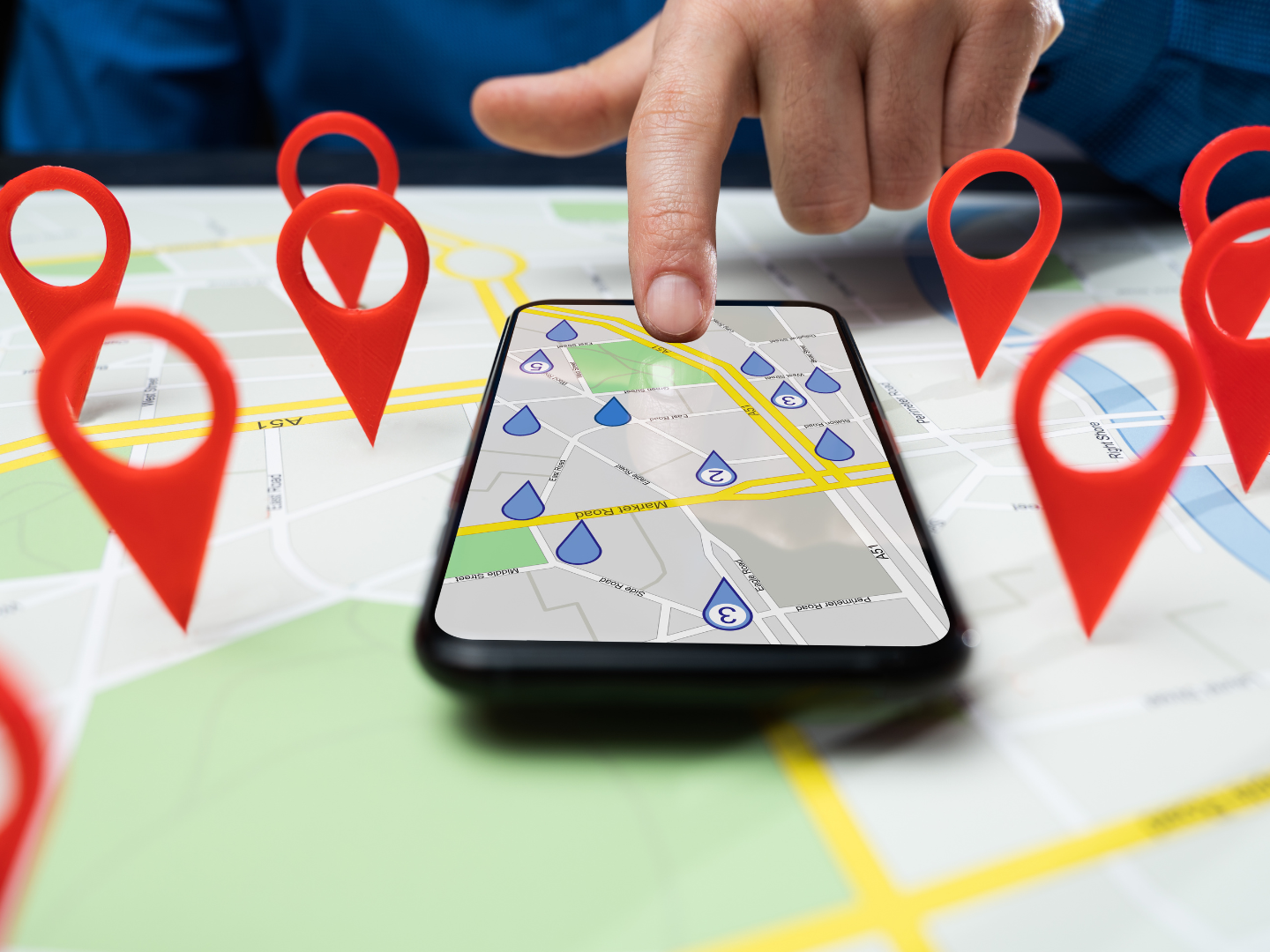THE IMPORTANCE OF LOCAL SEO FOR SMALL BUSINESSES: A COMPREHENSIVE GUIDE TO SUCCESS
Local SEO (Search Engine Optimization) is a crucial aspect of digital marketing that often gets overlooked by small business owners. However, optimizing your online presence for local search results can have a significant impact on your visibility, customer base, and overall growth.
In this blog post, I'll discuss talking points about the importance of
local SEO for small businesses, offer practical tips for improving your local search rankings, and provide examples of successful local SEO strategies.
talking points
Understanding Local SEO
Why Local SEO Matters
How to Improve Your Local SEO
Examples of Successful Local SEO Strategies
TALKING POINTS explained:

Understanding Local SEO
Local SEO is the process of optimizing your website and online presence to rank higher in search results for local customers. This involves targeting specific keywords related to your location and industry, as well as building local citations (mentions of your business's name, address, and phone number on other websites).
For example, a small bakery in Chicago might focus on keywords like "Chicago bakery" or "best pastries in Chicago" to attract local customers. They could also build local citations by getting listed on popular local directories like Yelp or TripAdvisor.
Successful local SEO strategies for small businesses often involve a combination of on-page optimization (e.g., incorporating local keywords in your website's content and meta tags), off-page optimization (e.g., building local citations and earning high-quality backlinks), and technical optimization (e.g., ensuring your website loads quickly and is mobile-friendly).

Why Local SEO Matters
Local search has a significant impact on consumer behavior and purchasing decisions. According to Google, 46% of all searches have local intent, and 88% of consumers who conduct a local search on their smartphone visit or call a store within 24 hours.
Moreover, a BrightLocal study found that local search has a 50% conversion rate, meaning that half of the people who conduct a local search end up visiting a store and making a purchase. This demonstrates the crucial role that local SEO plays in driving foot traffic, generating leads, and increasing sales for small businesses.

How to Improve Your Local SEO
Improving your local SEO involves several key steps and best practices. In this section, let's dive deeper into 5 of each of these steps, providing you with detailed guidance on how to optimize your website and online presence for local search.
1. Optimize your Google My Business (GMB) listing
Your GMB listing is a critical component of your local SEO strategy, as it helps your business appear in Google's local search results, Google Maps, and Google's Knowledge Panel.
To optimize your GMB listing:
- Claim and verify your listing: If you haven't already, claim your GMB listing by visiting the Google My Business website and following the steps provided. Once you've claimed your listing, you'll need to verify it, typically through a postcard sent to your business address or a phone call.
- Ensure accurate and consistent information: Double-check that your business's name, address, and phone number (NAP) are accurate and consistent across your GMB listing and other online platforms. Inconsistencies can confuse search engines and potential customers alike.
- Choose relevant business categories: When setting up your GMB listing, you'll be asked to choose a primary category that best represents your business. This category helps Google understand what your business does and plays a significant role in determining your local search rankings. Be sure to choose the most relevant category and add any additional categories that apply.
- Add high-quality photos: Upload high-quality photos of your business, products, and services to your GMB listing. Photos can help your listing stand out in search results and encourage potential customers to visit your business.
- Encourage customer reviews: Reviews play a crucial role in local SEO, as they can influence your search rankings and help build trust with potential customers. Encourage your satisfied customers to leave reviews on your GMB listing by providing them with a direct link to your review page or including a call-to-action in your email communications.
2. Target local keywords
Incorporating local keywords into your website's content, meta tags, and URL structure can help improve your visibility in local search results.
To effectively target local keywords:
- Conduct keyword research: Use tools like Google's Keyword Planner, SEMrush, or Ahrefs to identify popular search terms related to your location and industry. Look for keywords with a high search volume and low competition, as these can provide the best opportunities for ranking improvements.
- Incorporate local keywords throughout your website: Once you've identified relevant local keywords, incorporate them into your website's content, meta tags (including title tags and meta descriptions), and URL structure. Be sure to use your keywords naturally and avoid keyword stuffing, which can harm your search rankings.
- Create location-specific pages: If your business serves multiple locations, consider creating individual pages for each location, complete with unique content and local keywords. This can help improve your visibility in local search results for each of your target areas.
3. Build local citations
Local citations are mentions of your business's NAP on other websites, such as online directories, review sites, and social media platforms. Building local citations can help improve your local search rankings and increase your online visibility.
To build local citations:
- Get listed on popular local directories: Start by getting your business listed on popular local directories like Yelp, TripAdvisor, and Foursquare. Be sure to provide accurate and consistent NAP information across all listings.
- Submit your business to industry-specific directories: In addition to general local directories, submit your business to industry-specific directories. For example, a restaurant might submit its information to Foursquare, while a home services business could get listed on Angi.
- Join local business associations and chambers of commerce: Many local business associations and chambers of commerce offer online directories for their members. Joining these organizations can provide valuable networking opportunities and help build local citations.
- Monitor and update your citations: Regularly review your local citations to ensure that your NAP information remains accurate and consistent. Tools like Moz Local or BrightLocal can help you monitor and manage your citations more efficiently.
4. Manage customer reviews
Customer reviews are an essential component of local SEO, as they can influence your search rankings and help build trust with potential customers.
To effectively manage your customer reviews:
- Respond to all reviews: Make a habit of responding to both positive and negative reviews, as this demonstrates your commitment to customer satisfaction and can help improve your online reputation. Be professional, courteous, and empathetic in your responses, and use negative feedback as an opportunity to learn and improve.
- Encourage satisfied customers to leave reviews: Actively encourage your satisfied customers to leave reviews on platforms like Google, Yelp, and Facebook. You can do this by including a call-to-action in your email communications, providing a direct link to your review pages, or even offering incentives like discounts or freebies in exchange for honest feedback.
- Monitor your online reputation: Use tools like Google Alerts or Mention to monitor mentions of your business online. This can help you stay on top of new reviews and quickly address any negative feedback that arises.
5. Create locally-focused content
Publishing locally-focused content can help establish your business as a trusted authority in your industry and attract more local customers.
To create locally-focused content:
- Write about local events, news, and trends: Share your insights and expertise on local events, news, and trends that are relevant to your industry and audience. This can help demonstrate your knowledge of the local market and build trust with potential customers.
- Create location-specific content: If your business serves multiple locations, consider creating unique content for each area. This can help improve your visibility in local search results for each of your target areas and provide valuable information for potential customers.
- Collaborate with local influencers: Partner with local influencers, bloggers, or journalists to create content that showcases your products or services and appeals to your local audience. This can help increase your online visibility and establish your business as a trusted resource in your community.

Examples of Successful Local SEO Strategies
Example 1: A Local Bakery
Background: A small bakery in New York City noticed that they were struggling to attract customers from their neighborhood, despite offering high-quality baked goods and excellent customer service. They decided to implement a local SEO strategy to improve their online visibility and attract more local customers.
Local SEO Strategy:
The bakery took the following steps to optimize its online presence for local search:
Google My Business: They claimed and verified their GMB listing, ensuring their NAP information was accurate and consistent. They also added high-quality photos of their bakery, products, and team members to their listings.
Local Keywords: They conducted keyword research to identify popular search terms related to their location and products, such as "NYC bakery," "best bagels in NYC," and "gluten-free bakery in New York." They then incorporated these keywords into their website's content, meta tags, and URL structure.
Local Citations: They submitted their business to popular local directories like Yelp and TripAdvisor.
Customer Reviews: They encouraged satisfied customers to leave reviews on their Google My Business listing, Yelp page, and Facebook page. They also made a point to respond to all reviews, both positive and negative, professionally and courteously.
Locally-Focused Content: They started a blog on their website, where they shared recipes, baking tips, and news about local events and partnerships with nearby businesses.
Results: After implementing these local SEO strategies, the bakery saw a significant increase in its local search rankings, website traffic, and foot traffic to its store. They also noticed an improvement in their online reputation, thanks to their proactive approach to managing customer reviews and engaging with their local community through content creation.
Example 2: A Local Fitness Studio
Background: A fitness studio in Austin, Texas, wanted to expand its client base and attract more local customers. They recognized the potential of local SEO to help them achieve this goal and decided to implement a targeted strategy.
Local SEO Strategy:
The fitness studio took the following steps to optimize its online presence for local search:
Google My Business: They claimed and verified their GMB listing, ensuring their NAP information was accurate and consistent. They also added high-quality photos of their studio, workout classes, and instructors to their listings.
Local Keywords: They conducted keyword research to identify popular search terms related to their location and services, such as "Austin fitness studio," "yoga classes in Austin," and "group workout classes in Austin." They then incorporated these keywords into their website's content, meta tags, and URL structure.
Local Citations: They submitted their business to popular local directories like Yelp and Foursquare, and YogaFinder.com.
Customer Reviews: They encouraged satisfied customers to leave reviews on their Google My Business listing, Yelp page, and Facebook page. They also made a point to respond to all reviews, both positive and negative, professionally and courteously.
Locally-Focused Content: They started a blog on their website, where they shared fitness tips, success stories from their clients, and news about local events and partnerships with nearby businesses.
Results:
After implementing these local SEO strategies, the fitness studio saw a significant increase in its local search rankings, website traffic, and new client sign-ups. They also noticed an improvement in their online reputation, thanks to their proactive approach to managing customer reviews and engaging with their local community through content creation.
FINAL THOUGHTS
Local SEO is a powerful tool for small businesses looking to increase their visibility, attract more customers, and drive growth.
By optimizing your website and online presence for local search, you can tap into the vast potential of local customers who are actively searching for products and services like yours.
Don't miss out on the benefits of local SEO – start implementing these strategies today to improve your small business's online visibility and capitalize on the growing trend of local search. Your business can thrive in the competitive local market with dedication and persistence.
Of course, if you need help using
Local SEO tactics that work to increase your local traffic and sales to your website, let us help. Contact Us today, and let's start by helping to improve your local search engine optimization rankings so that you can thrive in your local market.
If you're interested in learning more about SEO and how it can help your business succeed online, check out our other blog posts here:
Don't forget to share this post!
RECENT talking points
by Arthur Barnes









